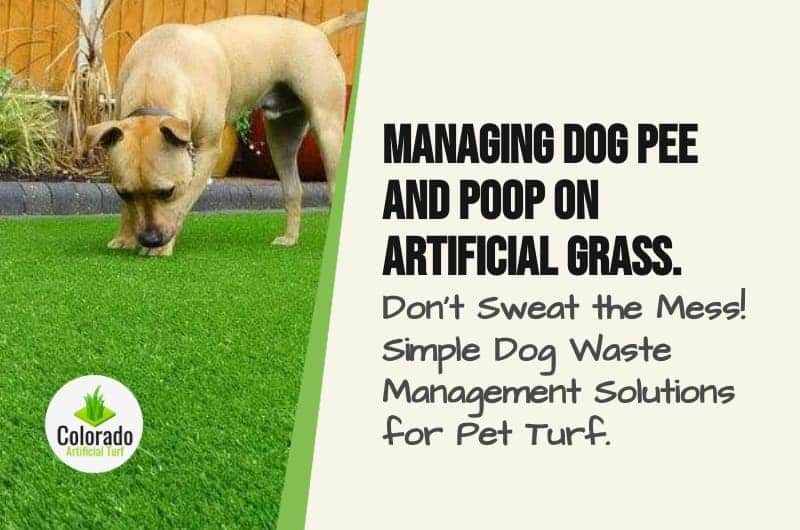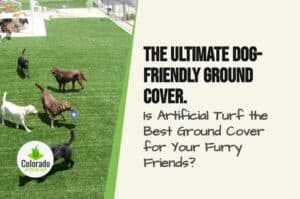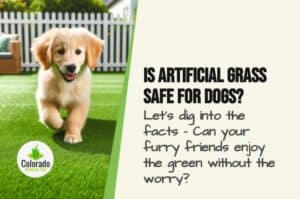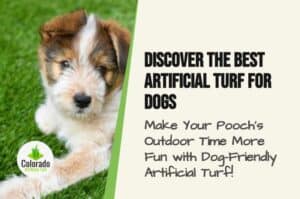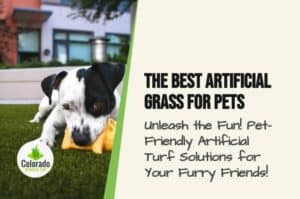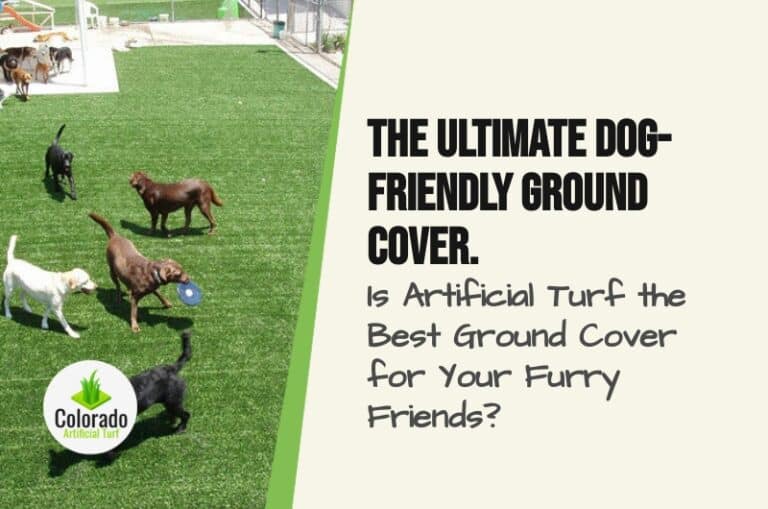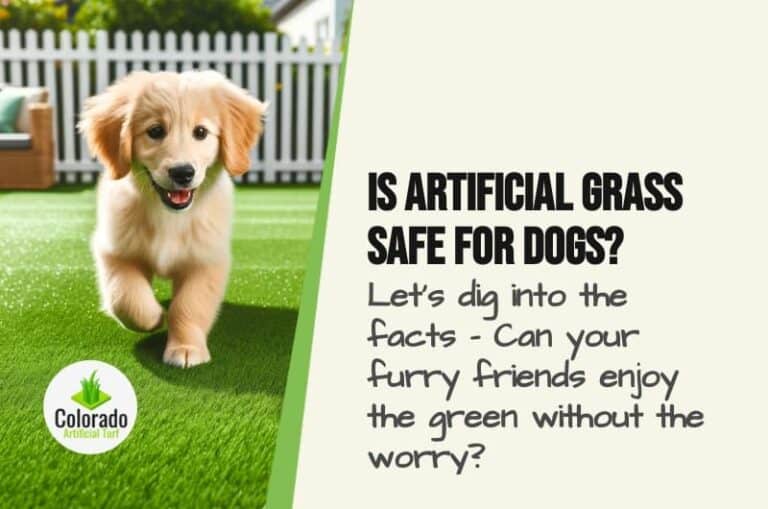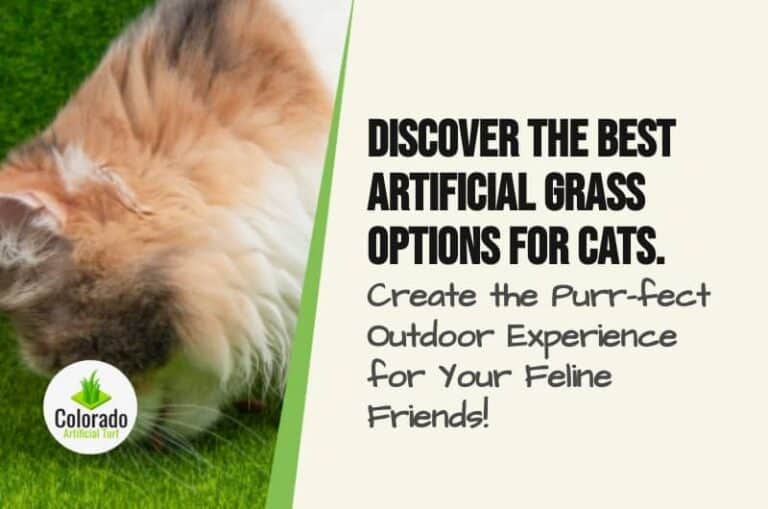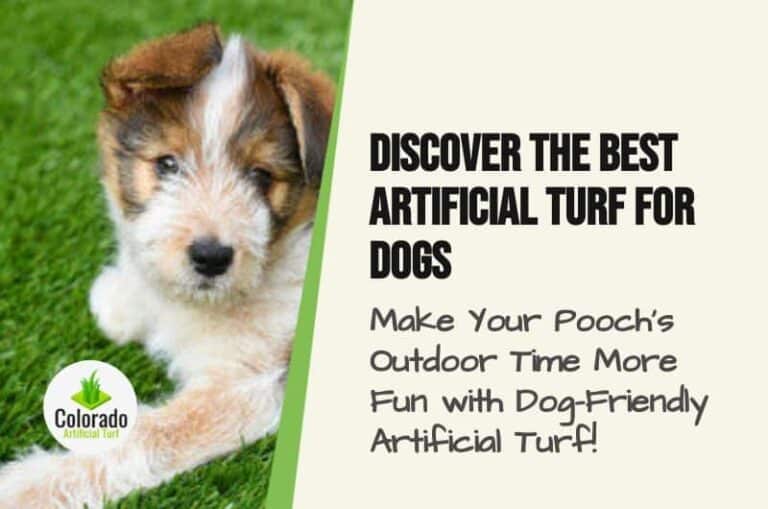Artificial grass (also known as artificial turf) is a great solution for your Colorado home if you have four-legged furry friends, as it has many benefits and artificial grass is safe for dogs.
However, managing dog pee and poop on artificial grass needs some attention.
In this guide, we’ll look at solutions for managing dog waste on artificial grass including:
- Tips on Cleaning Dog Pee and Poop on Artificial Turf
. - Preventive Measures for Dog Pee and Poop on Artificial Turf
.

.
How Dog Pee and Poop Affect Artificial Grass
Let’s take a closer look at how dog pee and poop can considerably impact your artificial grass:
Chemical Reaction of Dog Urine
- Dog urine contains nitrogen, which, while good for natural grass, can cause a burning effect and discolor artificial turf.
. - The acidity in dog urine can also cause artificial grass to smell of dog urine.
. - Over time, this can lead to discoloration and a less-than-fresh smell in your yard.
Imagine a sunny day in Colorado and your dog, Rover, goes out to pee on the artificial grass. With the sun is beating down, accelerating the chemical reactions, if not cleaned promptly, the area on the artificial grass with dog pee on could turn a different color and start to smell.
.
The Impact of Dog Poop
- Unlike urine, dog poop on artificial grass doesn’t have as much of a chemical impact.
. - However, if not cleaned promptly, it can leave residue and bacteria on the surface which can cause an unpleasant odor and potentially harm the grass.
. - In extreme cases, it can attract flies and other pests.
.
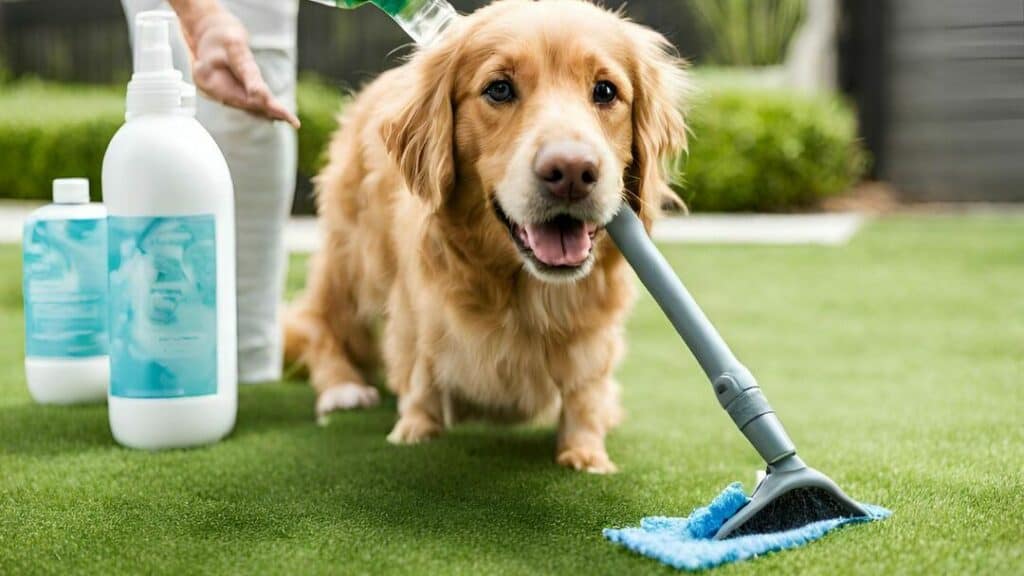
.
Tips on Cleaning Dog Pee and Poop on Artificial Grass
Artificial grass installations have been a hit in Colorado due to its low maintenance, eco-friendly nature, and aesthetic appeal, but maintaining the cleanliness and freshness of your artificial grass can be a challenge.
Here are a few tips to keep your dog safe turf clean:
Immediate Cleaning Steps
When your dog has used the artificial grass for potty, immediate action is the best course:
- Pick up the poop: As soon as you notice it, use a poop bag or scoop to remove the waste.
. - Blot up the pee: If you spot your dog peeing, blot the area with a dry towel to absorb as much as possible.
. - Rinse the area: Use a hose to rinse off the residue, as the water will drain through the grass, taking the waste residue down with it.
Remember, the faster you act, the less chance there is of a long lasting result of artificial grass that stinks of dog pee or poop, or damage to the artificial turf.
.
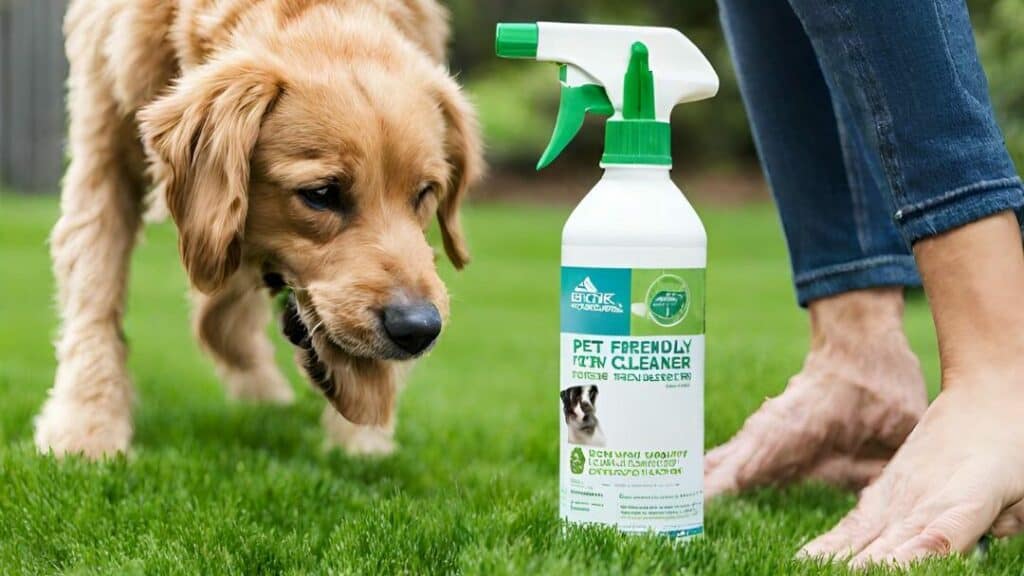
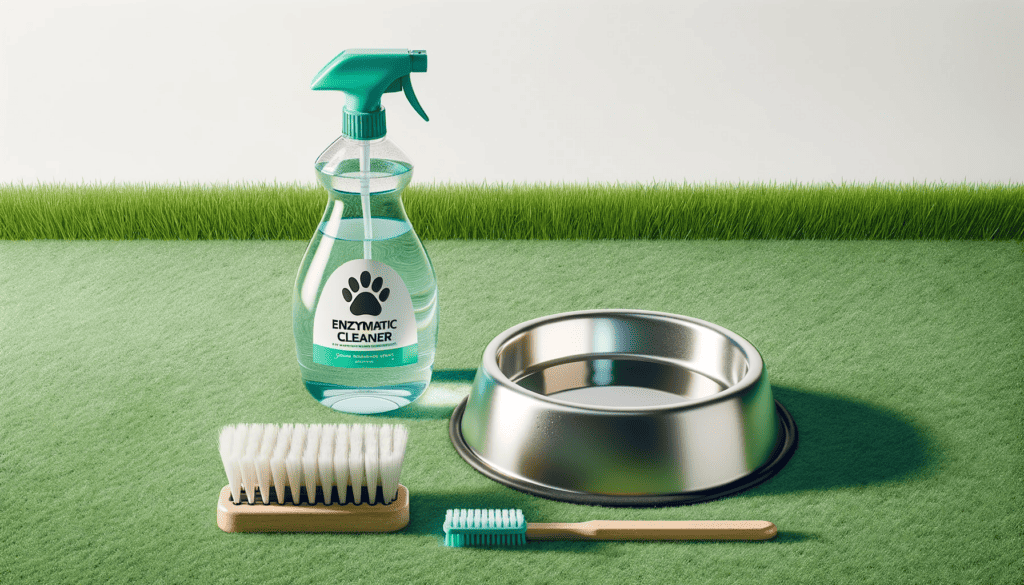
.
Deep Cleaning Techniques
Despite immediate cleaning, some messes may require deeper cleaning, and here are some deep cleaning tips:
- Use a mild detergent or vinegar solution: Mix 1 part vinegar to 1 part water, or use a gentle soap, then pour it over the stained area.
. - Scrub the area: Use a soft-bristle brush to scrub the grass gently as this helps the cleaning solution penetrate the grass blades.
. - Rinse thoroughly: After scrubbing, rinse the area again with water to wash away the cleaning solution and any dislodged waste.
. - Professional Cleaning Services: Pets can leave behind unwanted residues on the grass and professional companies offer specialized cleaning services to ensure the grass remains safe and clean for your pets.
Remember to avoid using harsh chemicals that could damage your artificial grass or harm your pets.
.
The Role of Deodorizers and Enzymatic Cleaners
Deodorizers and enzymatic cleaners play a vital role in maintaining cleanliness and helping neutralize dog pee and poop smells on artificial grass:
- Deodorizers: They help to eliminate unpleasant odors from pet waste, keeping your yard smell fresh. Just make sure that you use a specifically formulated dog urine deodorizer for artificial grass.
. - Enzymatic Cleaners: These cleaners are designed to break down proteins in pet waste, effectively eliminating stains and odors.
.
Regular Cleaning Routines
Maintaining a regular cleaning routine will help prevent build-up and keep your artificial grass looking fresh:
- Weekly Routine: Rinse your artificial grass with water to remove dust and small debris.
. - Monthly Routine: Apply a mild detergent mixed with water, scrub using a soft brush, and rinse.
.
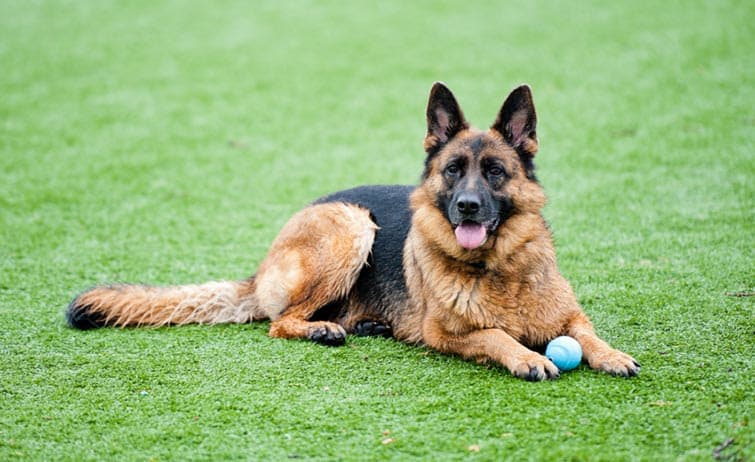
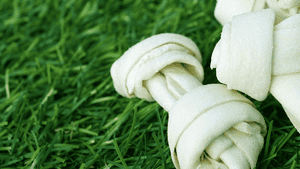
.
Preventive Measures for Dog Pee and Poop on Artificial Grass
Maintaining the pristine condition of your pet-friendly artificial is easier than you think, and here are some effective preventive measures to help you maintain the cleanliness and longevity of your dog-safe turf.
Training Your Dog for Proper Elimination Habits
- Begin by setting a regular feeding schedule for your dog as this will help you predict when your pet needs to relieve themselves and train them accordingly.
. - Use command words like ‘go pee’ or ‘potty time’ to signal your dog when it’s time to relieve themselves.
. - Remember to reward your dog when they use the artificial grass as their dog potty, as this will reinforce the behavior.
. - Consider hiring a professional dog trainer if your dog continues to have issues with proper habits.
.
Using Artificial Grass Pee Pads for Dogs
- Create a designated area for your dog to pee and poop, as this will prevent damage and staining to your artificial grass.
. - Consider using pee pads or a pet toilet area filled with absorbent materials like sand or gravel.
. - Encourage your dog to use these areas by rewarding them with treats or praise when they do so.
. - Replace the pee pads or clean the designated area regularly to maintain hygiene and prevent odor.
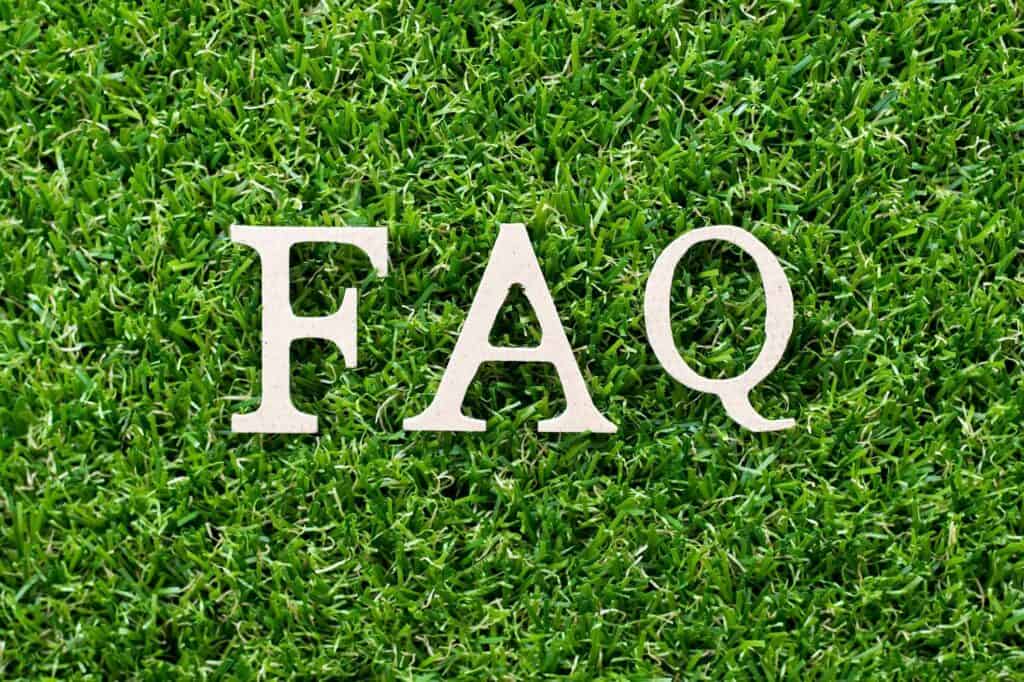
.
Frequently Asked Questions
.
What is the best type of fake grass for large dogs to pee on?
Large dogs require a stronger, more resilient type of grass to withstand their weight and activity level. Look for high-density fake grass, as this type can withstand the weight and activity of larger dogs without easily wearing out or losing its aesthetic appeal. The fake grass should be able to quickly absorb and drain dog pee to prevent unpleasant odors and maintain hygiene, so choose artificial grass with excellent drainage capabilities.
.
How does Colorado’s winter affect the process of dog pee or dog poop on artificial grass?
Colorado’s winter conditions can influence the process of dealing with dog pee or poop on artificial grass, mainly due to the freezing temperatures. In colder months, dog pee can freeze quickly on the surface of the grass before it has a chance to drain away, which could lead to potential odor issues when the temperature rises and the pee thaws. Heavy snowfall could cover the grass, making it challenging to spot and clean up dog poop.
Here’s how you could handle these scenarios:
- Regularly apply pet-friendly de-icer to prevent pee from freezing on the grass surface.
. - Clear off snow from the grass as soon as possible to facilitate easier spotting and clean-up of dog poop.
.
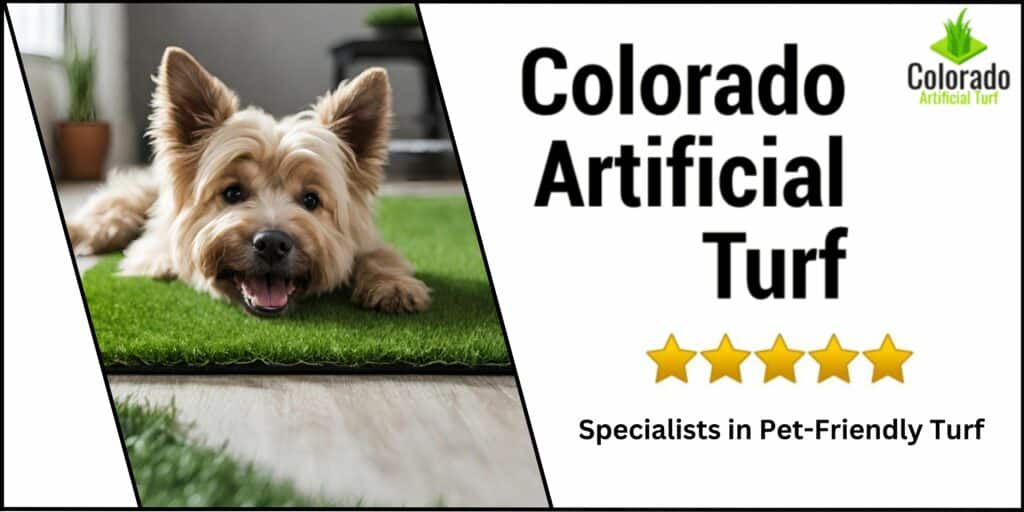
.
Professional Solutions for Pet-Friendly Artificial Grass in Colorado
Give us a call or fill in the easy-to-use online form to get expert advice.
